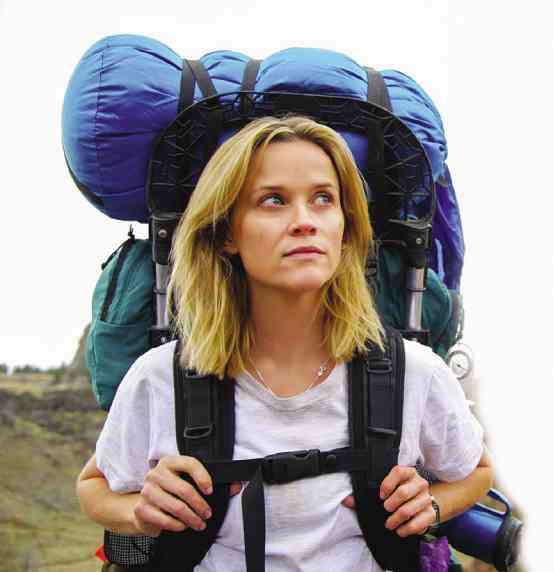Reese Witherspoon goes on an illuminating journey of purgation
Reese Witherspoon is mighty proud of her latest starrer, “Wild”—and with good reason. The deceptively “small” film tells the true story of a woman whose adult prospects are gravely compromised by her having had a wife- and child-beating thug for a father.
Her life story serves as a cautionary tale for all parents, because her sad childhood warped her so badly that her life as an adult became a tragic mix of psychological, sexual and addictive horrors.
Her mother tried her best to compensate for her husband’s drunken violence, but to little avail. Only after her determinedly cheerful mom passed away did Witherspoon’s character realize how warped and wretched she was, and the only way she could save herself was to force herself to trek the entire thousand-mile length of the Pacific Coast Highway in the States—an “impossible” task that she was prepared to “die” attempting.
Indeed, as the film’s protagonist starts off on her life-changing and even life-saving journey of a thousand miles, the viewer is in constant dread for her safety, as any number of natural and human-instigated dangers lurk along the way. Not only does she have to cross a desert and a mountain range, but she also has to fend off would-be “saviors” who turn out to be rapists in disguise, etc.
Sinister threat
But, when all is said and done, the most sinister threat she has to contend with turns out to be—herself. She’s become so conflicted that there are many bad habits and addictions she has to purge out of her system, not the least of which is her being a nymphomaniac! It’s this tragic addiction that has forced her loving husband to divorce her—but, she can’t divorce herself, so she has to achieve the “impossible.”
The film’s lead actress wins viewers’ admiration for being completely committed to her complex role’s daunting requirements. And the film as a whole is similarly admirable, because it’s able to sustain the audience’s involvement even when very little appears to be happening onscreen—except for one lonely trekker forcing herself to continue with her grim journey of purgation.
The film is full of telling little “moments,” but the best bit in our view is its protagonist’s “accidental” encounter with a little boy who sings her a simple song of hope and acceptance. Right after the “angelic” encounter, the “wild” trekker of the film’s title is finally able to cleanse her soul with a torment of retroactive tears—and, to forgive herself.
Reflecting on the film’s progression and outcome, we realize that it’s a powerful viewing experience, because Witherspoon’s character isn’t the only one who’s gone on the arduous journey of purgation: We have been with her every step of the way, and have thus experienced our own empathetic illumination.
Meaningful lines of dialogue and narration are cherished for their ability to guide us to our own journeys’ goal, like “I didn’t know where I was headed—until I got there.” —Talk about perfect closure!
